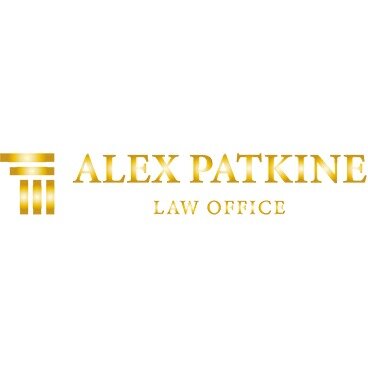Best Tax Increment Financing Lawyers in Israel
Share your needs with us, get contacted by law firms.
Free. Takes 2 min.
Or refine your search by selecting a city:
List of the best lawyers in Israel
About Tax Increment Financing Law in Israel
Tax Increment Financing (TIF) in Israel is an innovative financial strategy designed to promote economic development in specific areas. TIF involves capturing future increases in property and business taxes generated by new developments or improvements within a designated district and using these revenues to pay for the development costs of this district. It aims to incentivize redevelopment and improve urban areas by funding public infrastructure projects and stimulating private-sector investments. While TIF is gaining attention as a powerful tool for urban renewal, its application is still evolving in the context of Israeli local authorities.
Why You May Need a Lawyer
Seeking legal counsel in the field of Tax Increment Financing in Israel can be crucial in several scenarios:
- Complex Regulations: Understanding the intricate legal and administrative framework governing TIF is essential. A lawyer can help navigate these complexities.
- Project Development: Legal expertise ensures compliance with all requirements during project planning and execution, helping avoid potential legal setbacks.
- Dispute Resolution: In case of disputes between developers, local authorities, or other stakeholders regarding TIF agreements, legal intervention might be necessary to resolve issues amicably and legally.
- Contract Negotiation: Lawyers can assist in negotiating terms between municipalities, developers, and other parties involved in TIF projects to ensure favorable outcomes.
- Financing Agreements: Structuring and managing financing deals related to TIF require legal expertise to safeguard involved parties' interests.
Local Laws Overview
While Tax Increment Financing is not universally standardized in Israel, several legal components are commonly relevant:
- Urban Renewal Laws: The legislative framework for urban renewal provides guidelines that may overlap with TIF initiatives.
- Municipal Authority: Local governments in Israel have the authority to implement TIF projects, but they must do so within the bounds of applicable municipal and national regulations.
- Taxation Rules: Understanding local property tax laws is vital because TIF relies on projected increases in tax revenue from the developed area.
- Environmental Regulations: Developments often need to meet certain environmental standards, and compliance is necessary to proceed with TIF projects.
Frequently Asked Questions
What is the primary purpose of TIF in Israel?
TIF aims to stimulate public and private investment in underdeveloped or blighted areas, encouraging economic growth and urban renewal through financing infrastructure improvements with future tax revenues.
Who benefits from TIF?
TIF benefits include local governments, developers, businesses, and residents in the targeted areas. It enhances property values, infrastructure, and economic activity while creating jobs.
Are there any transparency requirements for TIF projects?
Yes, in Israel, TIF projects are subject to transparency and public disclosure requirements to ensure accountability to residents, developers, and the authorities involved.
How are TIF districts designated?
Local government authorities typically designate TIF districts based on criteria such as economic need, developmental potential, and alignment with municipal planning goals.
How is the increment in tax revenue calculated?
The increment is calculated by assessing the increase in property and business taxes post-development compared to a pre-determined base year.
What types of projects are typically funded by TIF?
TIF funding may be used for infrastructure improvements, public amenities, housing developments, or other projects that spur economic growth and community development.
Can TIF affect local taxpayers?
Theoretically, TIF should not burden local taxpayers as it uses future tax revenues generated by the development itself, rather than existing tax funds.
How long does a TIF district remain active?
The length of time varies based on municipal guidelines, project scope, and financial structures. Some districts may be active for 20-30 years.
Can TIF funds be used for anything other than infrastructure?
Primarily, TIF is intended for infrastructure and public benefit projects; however, the scope can sometimes extend to initiatives that directly or indirectly support the primary goals.
What happens if a TIF project fails to generate expected tax revenues?
If tax revenues fall short, this can pose challenges in repaying the TIF-related debt. In such a case, adjustments or interventions might be necessary, often involving legal assistance to resolve.
Additional Resources
If you are seeking further information or legal advice regarding TIF in Israel, consider these resources:
- Israel Ministry of Finance: Provides information on economic policies that might intersect with TIF projects.
- Local Government Centers: Engaged in urban planning and development, these centers offer insights into local TIF regulations and initiatives.
- Real Estate Law Firms: Many specialize in TIF agreements and can offer tailored legal advice and representation.
- Municipal Authorities: Engaging with the local municipality can provide direct insights into ongoing and planned TIF projects.
Next Steps
If you believe legal assistance is needed for issues related to Tax Increment Financing in Israel, consider taking the following steps:
- Research: Start by understanding your specific issue or query related to TIF.
- Consultation: Schedule a consultation with a lawyer specializing in tax or real estate law to discuss your concerns and explore legal options.
- Engagement: Should you decide to proceed, ensure you engage an experienced attorney who can effectively advocate for your interests in TIF projects.
- Documentation: Gather all necessary documents, contracts, or correspondence related to your TIF matter.
- Follow Up: Regularly follow up with your legal counsel to ensure timely resolution of your issues, and stay informed on legal developments in TIF.
Lawzana helps you find the best lawyers and law firms in Israel through a curated and pre-screened list of qualified legal professionals. Our platform offers rankings and detailed profiles of attorneys and law firms, allowing you to compare based on practice areas, including Tax Increment Financing, experience, and client feedback.
Each profile includes a description of the firm's areas of practice, client reviews, team members and partners, year of establishment, spoken languages, office locations, contact information, social media presence, and any published articles or resources. Most firms on our platform speak English and are experienced in both local and international legal matters.
Get a quote from top-rated law firms in Israel — quickly, securely, and without unnecessary hassle.
Disclaimer:
The information provided on this page is for general informational purposes only and does not constitute legal advice. While we strive to ensure the accuracy and relevance of the content, legal information may change over time, and interpretations of the law can vary. You should always consult with a qualified legal professional for advice specific to your situation.
We disclaim all liability for actions taken or not taken based on the content of this page. If you believe any information is incorrect or outdated, please contact us, and we will review and update it where appropriate.
Browse tax increment financing law firms by city in Israel
Refine your search by selecting a city.

















